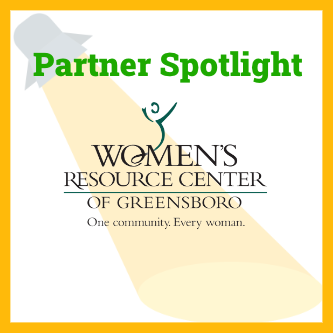The Women’s Resource Center of Greensboro’s mission is to promote women’s self-reliance by assessing needs, providing services, and acting as a gateway to community resources.
“When we started our agency in 1995, we wanted to help women in our community connect to the plethora of resources we have in Greensboro and Guilford County. There are so many options that people don’t know about, or if they are eligible for services, or even what the services are,” said Ashley Brooks, executive director.
Currently, the Women’s Resource Center of Greensboro offers programs such as free legal advice in consultation with an attorney, job searching and networking services, community resource counseling, and education workshops on topics such as budgeting, credit repair, emotional well-being, first-time homebuying, and applying for social security.
“We also do landlord-tenant rights, health care, and planning for all stages of life,” Brooks said. “With just six staff members, we partner with professionals in our community who volunteer their time and talents with women seeking financial literacy, legal advice, resume assistance, and more!”
During the pandemic, the center offered its services virtually, with meetings via zoom and other resources. Now it has returned to in-person consultations and workshops. “It’s so different when we can sit down and talk to a woman and help her map out a plan,” said Brooks. “Nothing beats having somebody sit with you and figure out why you need assistance, how to get it, and even how to make it better for your family next month.”
The Women’s Resource Center of Greensboro is part of Ready for School, Ready for Life’s Continuous Quality Improvement (CQI) Cohort II. It’s a team-based process of collecting, analyzing, and using data to improve service quality.
“We’ve been excited to have this opportunity,” Brooks said. “We’re learning how far we are already in the process and how much of this work we’ve been doing without the right language to explain it.”
Brooks said that the CQI process is helping their staff better measure their outcomes, figure out better ways to attract clients and volunteers, and understand how the women they serve use their services or which barriers they may face so the organization can overcome them.
“There are many changes we’re making. They’re good changes and timely ones,” Brooks said. “And ultimately, everyone on our staff is on board and understanding it. CQI has been so helpful.”


